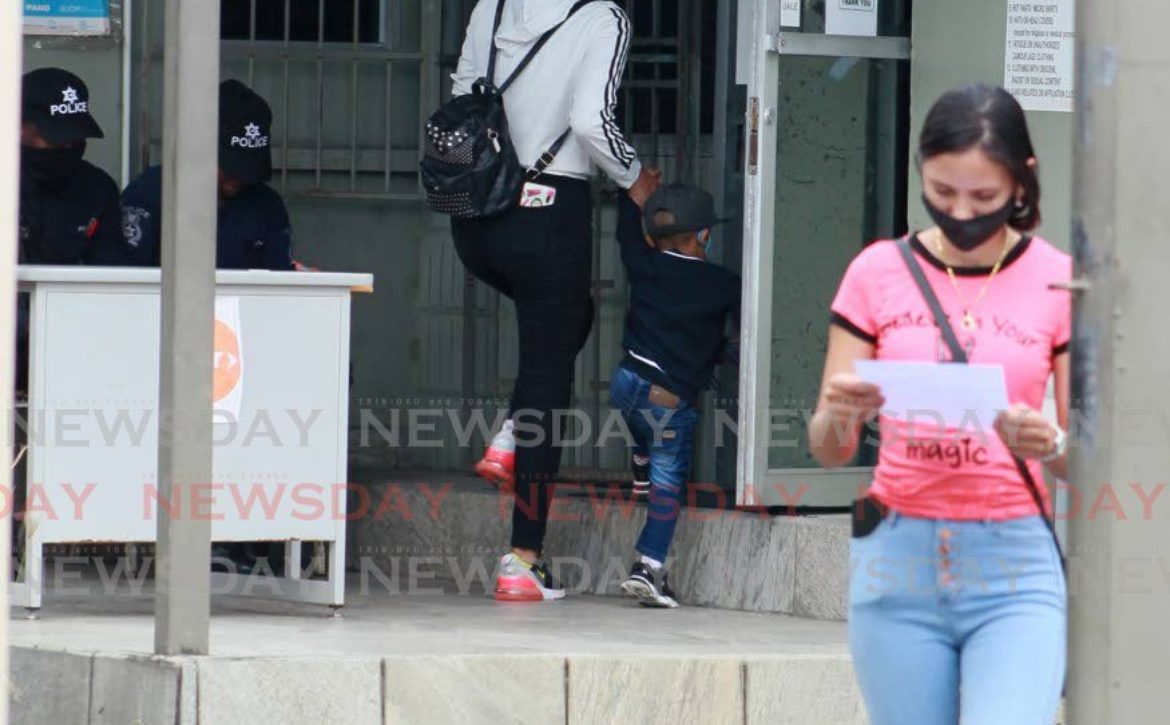
Venezuelans in Trinidad worried about evictions
The extension of the covid19 restrictions until July 4 and the state of emergency for three more months because of covid19 have added further troubles for Venezuelans trying to survive in Trinidad and Tobago.
The decrease in jobs due to the lockdown already meant a lack of income, and as a consequence some of the refugee community are struggling to cover the expenses of rent and food.
One Venezuelan woman said the main problem now is lack of money to pay the rent: “Almost all Venezuelans in TT pay rent, and without work we do not have the money to pay. So the landlords are threatening to put us out in the street.”
She has lived for two years in the same place in Chaguanas. She and her family have always been punctual with their rent, but now she, her husband and her brother are unemployed.
“We spoke with the owner of the house to reach a payment agreement when we returned to our jobs, but he refused, and said if we do not pay on June 3 we must vacate the house,” she said.
Her children, five and seven, live with them as well.
“It is unfair and inhumane. For two years we have always complied and now that we do not have money to pay for one month, they will put us in the street,” she said.
Also in the same situation are a couple in Arima. The owner of the apartment they have been renting for three years refuses to compromise on the rent.
“We only ask for a payment agreement so that after the jobs resume, we can pay
in instalments
like we did in the last lockdown, but the owner of the house doesn’t want to,” said the man.
They both worked in a restaurant which is now closed because of the lockdown.
Both said thanks to the Venezuelancommunity, with the help of Trinidadians, they have food. Several NGOs are working to help refugee families.
Andreina Briceño Brown, director of La Casita de Arima, said since the last lockdown it has been managing a database of the most needy people.
“This time, La Casita unified efforts with community leaders in various areas of Trinidad and we are receiving donations in each town to help those who have registered with these leaders.”
This group of leaders has a database of 4,000
requests for help, mostly for paying rent. But the only donations they can make are of food and personal hygiene items.
Briceño Brown said the group will not be able to help all those registered for six weeks.
“We are managing a list by area and sharing the data so that families do not receive more help until everyone on the list receives their first contribution,” she said.
Mixi Mendoza and Thairys Mejías, representatives of the Hermandad Sin Fronteras (Brotherhood Without Borders)
organisation, are also part of this support group for the South American community.
Mendoza and Mejías said some 90 Venezuelan families had registered for the food assistance since the beginning of May.
For three weeks they have been able to help only 35 families.
Both Briceño Brown and Mejías said the demand is very high and the donations are very few.
“We are not receiving the same volume of aid as in the first lockdown of 2020, so the situation is very difficult right now,” said Briceño Brown.
Both called on businessmen and other organisations to continue contributing to help the refugee community.
The UN Refugee Agency , Living Water Community, Red Cross and the RC churches have also been donating food.
But the greatest concern is the possible eviction of hundreds of families from their homes because they cannot pay their rent.
Briceño Brown said, “There are homeowners who have had a family for three or four continuous years renting, and regardless of this situation, they have threatened these families with eviction if they do not pay the rent at the end of the month. That is why the call is to all landlords so that they can talk with the tenants and reach agreements and thus avoid putting them in the street,”
La Casita and Hermandad Sin Fronteras have even received requests for help from individuals and entire families who want to return to their country.
“It is a very difficult situation, more worrying than the first lockdown,” said Meijias. “(There are) many families without jobs, without money to pay rent and without food. We imagine in June it will be even harder.”
The post Venezuelans in Trinidad worried about evictions appeared first on Trinidad and Tobago Newsday.
Read More


